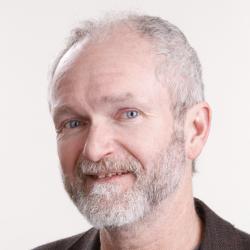When you make a promise to a child, it’s got to be a sure thing.
“I promise you that later on, after I get the lawn cut, I’ll take you to get ice cream.”
As soon as you shut that lawn mower off, those big eyes will light up and that kid will be right by your side, waiting to get in the car. Whatever is on your mind, to her it is ice cream time, and that’s that.
There’s nothing sadder than the eyes of a kid who just found out that a promise has been broken. Most parents would rather die than face those eyes.
Sadly, our kids have gotten used to broken promises.
New York state has ignored its promise to give our city’s kids a quality education. Nearly a decade after a court ordered the state to increase school aid, Albany finds reasons every spring not to provide the constitutionally mandated “sound, basic education.”
Syracuse long ago gave up on the hope that we can pay for the schools that our students deserve. We can’t tax ourselves, we can’t borrow, there’s nothing in the rainy day fund. When we’re not blaming the teachers, we blame flight to the suburbs, an unequal education aid formula, and, more recently, federal testing mandates. But for the kids in failing schools, it’s all the same thing: a broken promise.
In 2008, a new promise was made. Everyone from then-Councilor-at-Large Stephanie Miner to then-Syracuse School Superintendent Dan Lowengard called the Say Yes promise of a guaranteed college education to all qualifying graduates of Syracuse city high schools a “game changer.” Say Yes offered kids a chance out of poverty by making higher education attainable for those who couldn’t afford it. It offered support to help students graduate with the grades to get into college.
Say Yes was always a lot more than the promise of free tuition. But its bedrock, and the reason we embraced it, was the tuition promise. If Say Yes had just come to town to tell us how to reform our schools, we would have told them to take a number and wait in line. Unique in this package was the promise to the kids: You do the work, we’ll find the money.
In the April 12 edition of The Post-Standard, Say Yes leaders admitted to reporter Dave Tobin that if Syracuse doesn’t pony up, the scholarship fund for students going to state schools (that’s most of them) might run dry in a few years. The national Say Yes, which ceased funding the student supports a year ago, threatened to quit backstopping the scholarships by 2017. We are expected to fund an endowment of $20 million or $30 million to keep it going. (So far there’s $10 million, raised over the course of eight years).
It sounded for a minute like the cynics who found the Say Yes promise too good to be true were right after all.
It sounded like those of us who saw this investment in our town as a game changer were the fools after all.
Did Say Yes, when it showed up in 2008, say that funding the scholarships would be our responsibility after a period of time?
I asked Pat Driscoll, who runs the Say Yes local operations, if there was any evidence — a press release, or a sound bite, perchance a Wikileaked memo, indicating that Say Yes had said publicly at the outset that the promise had an endpoint. So far, nothing has showed up.
Syracuse Mayor Stephanie Miner has chosen not to comment on this. Syracuse University Chancellor Nancy Cantor has moved on.
Ann Rooney, deputy county executive for human resources, and Kim Bradley, chief of staff of the school district, both expressed confidence that the money can be raised locally. But that wasn’t the question. The question was: Is this a hope or a promise?
Lowengard, who was present at the beginning, says that it was a promise from Say Yes National. “It was George Weiss’ money” that would back the promise, he says, referring to the hedge fund owner who founded Say Yes.
Just before we went to press, Mary Anne Schmitt-Carey, the president of Say Yes National called. She had many challenges for the people of Syracuse and our leaders. But this she made clear: Say Yes National and George Weiss will make sure the scholarships are in place.
Asked directly if she was guaranteeing that the national organization would backstop those scholarships past 2017, she did something that kept hope alive in a city that sometimes has a tough time believing in itself.
She said yes.
More on Say Yes and our conversation with Mary Anne Schmitt-Carey next week.












